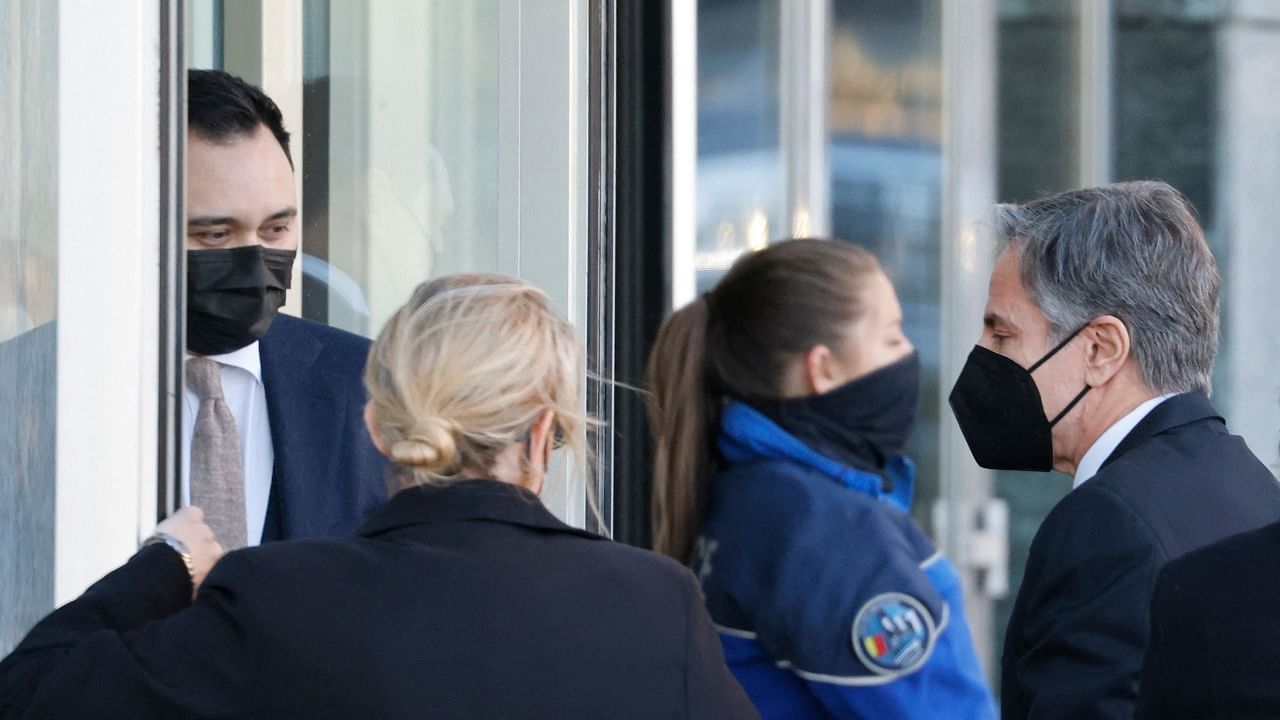
Russia appears likely to launch some form of intervention in Ukraine but its scale remains far from clear, as the Kremlin has a considerable choice of options at its disposal, analysts say.
Moscow has in the last weeks massed some 100,000 troops close to the border with Ukraine, sparking fears that the most serious East-West conflict since the Cold War is on the brink of eruption.
US Secretary of State Antony Blinken is meeting Russian Foreign Minister Sergei Lavrov in Geneva on Friday. The meeting is seen as one of the final chances for diplomacy over Ukraine, with Russia loudly protesting the pro-West orientation of its neighbour.
President Joe Biden this week angered Ukrainian leaders by suggesting that a "minor incursion" from Russia would face a more measured response from the West than a mass invasion.
But analysts say the Russian troop deployment gives Moscow an array of options and President Vladimir Putin will make his choice weighing factors ranging from the West's retaliation to the weather.
"From a military point of view, Russia is preparing for the full range of eventualities, from psychological agitation -- via cyber and informational means -- to a massive invasion," said Mathieu Boulegue, a research fellow at the London-based think tank Chatham House.
"For Moscow, the question is no longer 'if', but 'when' and 'how' to intervene in Ukraine," he said, arguing that "Russia is only waiting for a pretext".
Boulegue said there was time pressure for the Kremlin as it would prove difficult to keep so many Russian troops -- many of them deployed from the far east of the country -- in place for a long period in the winter months.
Despite the mass ground deployment, an invasion would be costly for Russia, which is why Putin could opt instead for air and artillery strikes on Ukrainian command and control centres to destroy their ability to retaliate "without having to move Russian troops", he said.
In what many have seen as the opening salvoes in a conflict, Ukraine last week suffered a massive cyberattack that the West blamed on Russia.
Meanwhile, Moscow is planning major military exercises with the regime in Ukraine's pro-Kremlin neighbour Belarus in February.
"Russia likes to put forces in play that can calibrate the crisis from complete de-escalation to total warfare, so that they have all the options," said William Alberque of the International Institute for Strategic Studies.
He said these options ranged from cyber and information warfare to "up to a massive invasion".
"They (Russia) want something from Ukraine," he added.
Alberque said the changing of the seasons from winter to spring provided another factor.
"Russia has a window of opportunity from now until daily temperatures go up in Ukraine. The last thing they want is to operate tanks in spring, where they are going to get absolutely bogged down," he said.
Pavel Baev, research professor at the Peace Research Institute Oslo, predicted air strikes as the most likely intervention by Russia given Ukraine's inability to respond in "any significant way".
He said that even the large numbers of Russian troops deployed on the border were not enough for a "massive invasion and occupation" of Ukraine.
"When in 1968 the Soviet Union walked into Czechoslovakia -- which was a small country -- it had at least twice as many troops as Russia has at the border of Ukraine," he noted.
Keir Giles, research director at the Conflict Studies Research Centre, said Russia had many options other than a land invasion to achieve its goals.
"Russia could launch a land invasion if it wished to, but it would be expensive, messy and above all unpredictable," he said.
While the Russian troop build-up was sufficient for a "limited land grab" in Ukraine, the same effect for Russia could be achieved by missile, air or cyber strikes targeting critical Ukrainian military or civilian systems, he said.
Such strikes "could be turned on and off at will, and punctuated by pauses to repeat or escalate demands in order to pressure Kyiv into concessions and its Western partners into granting Russia's wishes", he said.